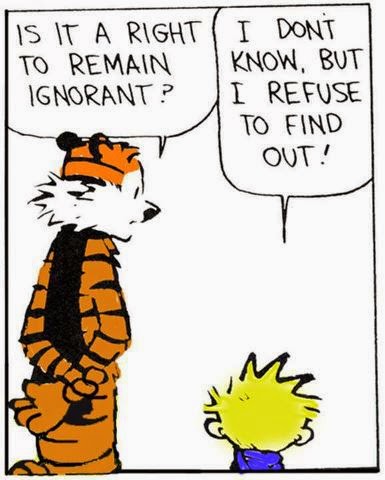 While differing widely in the various little bits we know, in our infinite ignorance we are all equal. —Karl Popper
While differing widely in the various little bits we know, in our infinite ignorance we are all equal. —Karl Popper
Donald Rumsfeld was the U.S. secretary of defense under both presidents Gerald Ford and George Bush. One of his claims to fame was to distinguish different kinds of knowing and not knowing. He said:
“There are known knowns. These are things we know that we know. There are known unknowns. That is to say, there are things that we know we don’t know. But there are also unknown unknowns. There are things we don’t know we don’t know.”
I want to add one phrase to his statement and comment on each one.
There are known knowns. Things we know that we know.
I know how to tell time, that I live in the 21st century, how to drive a car, that chianti wine is made from the Sangiovese grape, basic math, etc.
There are known unknowns. Things we know we don’t know.
I don’t know how to speak Mandarin, overhaul a car engine, understand the Higgs boson, or perform an appendectomy.
There are unknown knowns. Things we think we know but we don’t. (My sentence.)
In their good book, The Knowledge Illusion, Sloman and Fernbach make an unassailable argument that all humans know much less than we think we do; we all suffer from the illusion of understanding. For instance, how does a flush toilet really work? Or a speedometer? A quartz watch? We’re familiar with these items but we have no clue how they work.
There are unknown unknowns. Things we don’t know we don’t know.
To me, this is the most frightening and exhilarating truth. Frightening because I’m unaware of threats and compromises that may assail me. Exhilarating because there are infinite realms of knowledge that I can explore, enjoy, and benefit from. We are all unique in what we know, and similar in our infinite stupidity.
Rumsfeld’s statement was in the context of military threats and opportunities, in which most unknowns are seen as dangerous and threatening. But in a civilian context, unknowns can represent an infinite source of good and beneficial knowledge.
An important prerequisite to lifelong learning is to become progressively convinced of our unfathomable ignorance and to develop a keen desire to pursue the unknown.
Since 2006, a course entitled Ignorance has been taught at Columbia University. Guest scientists are invited to speak about what they don’t know. The course focuses on things that are not in textbooks and thus teaches students to think about what is unknown and what could be known.
If I lived in New York City, I would enroll in this course.
[reminder]What are your thoughts about this essay?[/reminder]

I found this fascinating, Don. It’s those things I realize I don’t know — but SHOULD know — that haunt me! And as the years continue, that list grows.
One of my mentors, now dead, used to say: “If there is something you don’t know, acknowledge it, don’t deny it. Ignorance is one thing that should never be exported!”
Chuck, I should add that to the list…things I realize I don’t know, but should know. The older I get, the more ignorant I become. Don
So, what you are saying is that you so not know if a course like that is taught in north Texas …
Jay, interesting observation 🙂 It sounds like a course taught on one of the coasts…
Your comments remind me of a statement by the great philosopher, Louis L’Amour: “There is no man more dangerous than one who does not doubt his own rightness.”
Joey, thanks for taking the time to respond. I love the philosopher’s quote 🙂
He who knows not, and knows that he knows not is a fool; shun him.
He who knows not and knows that he knows not, is a child; teach him.
He who knows, and knows not that he knows, is asleep; wake him.
He who knows, and knows he knows, is wise; follow him.
Persian proverb
Thanks, Marty. The first two lines are the same; is that the way the saying goes?